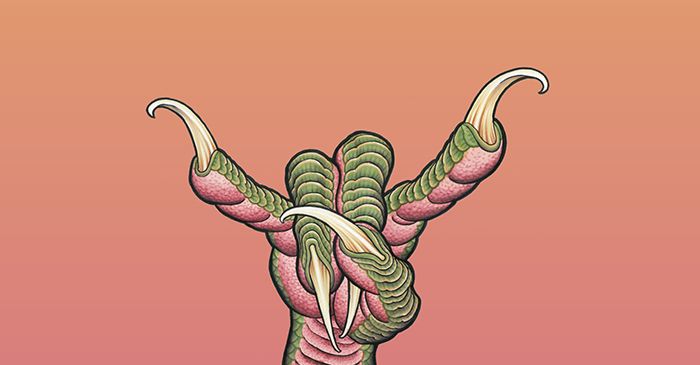Review: Mr. Rochester by Sarah Shoemaker
"If I had turned my back on my father's plans, my journey would have been entirely different, and while I might have fond a satisfactory sort of life much sooner, I would never have found Jane."
My rating: 4.5/5 stars
Edward Fairfax Rochester just wants to be happy. For most of his life, he is following orders given to him by his father. As the second son, he will inherit nothing. His elder brother Rowland gets everything - including his beloved childhood home, Thornfield Hall. Edward's father has his entire life planned out for him - from school as a young boy, to working at and managing a wool mill, to university, and finally, to Jamacia to take over the Rochester sugarcane plantation. We follow Mr. Rochester throughout his life, continuing in Paris and eventually back to England - until he meets Jane Eyre. We all know how it ends. But how did we get there? Why is Edward Rochester the cruel and bitter, or at best, jaded man he appears to be when he meets Jane?
We already know Jane's story. This is HIS story.
The beginning chunk of the book shows us Edward in his early schooling days. This was one of my favorite parts of the book, as it really lays out some things about Mr. Rochester; this is where he learns things that will stay with him throughout his life, and makes friends whose wise words and love stay in his heart forever.
"You have to play the cards you were dealt," his dear childhood friend Carrot tells Edward. This line is repeated and is a huge theme in the book, as well as a key to understanding why Mr. Rochester is who he is. He is often dealt a shitty hand (usually on purpose by his father), but he continuously is trying to do the right thing. Morals are very important to Mr. Rochester, and this is another theme that he struggles with, especially after he falls in love Jane while he is already married. Here I also learned a ton of random facts about philosophy and the history of the British military, which is always a plus. It is evident that a ton of research went into this book, besides just "reading between the lines" of Jane Eyre itself.
The next few parts of the book drag a bit. I wouldn't dare call if boring, because there are a lot of little pieces to this story that eventually add up in the end, or are at least crucial to painting Edward Rochester in a full light. It was just, at times, excruciatingly detailed. Mr. Rochester is a thick novel (not in pages, but in details), and it reads like literature - it should be savored and read slowly, like a rich, chocolate cake. I sometimes got frustrated and distracted because of the slow pace, hence my reluctance in giving a full five stars. (Perhaps this is more my own fault than the book's.)
The most interesting and therefore my favorite part of Edward's tale was meeting Bertha Mason, his eventual wife. When we meet Bertha in Jane Eyre, she is barely a human. She is completely mad - a monster secretly living inside the walls of Thornfield Hall. We can't help but wonder how she got that way. Shoemaker thoroughly examines and explains Bertha's descent into madness, including backstory into all other members of her family in Jamaica. Though Bertha is usually seen as a villain and a hindrance to the love between Jane and Edward, I could not help but pity Miss Mason. Even back in the 1800's, when mental illness was so misunderstood, Jane chimes that is not her fault that Bertha is ill. I applaud Shoemaker for the way she handled such a complicated piece of the story.
As Edward finally returns to Thornfield Hall, after his excursions in Paris and other European cities, I started getting anxious to see the conclusion. The backstory to Rochester's affair with Celine, and then his brief courtship with Blanche Ingram were fairly interesting, but at this point I kept asking "WHERE IS JANE?!".
At one point, during the bits with Gerald Rochester (who, admittedly, I do not even remember from Jane Eyre, oops), I thought the ending was going to change, that somehow Thornfield would be lost again to Edward, and that he and Jane would run away together. Of course, Shoemaker stays true to the story, but I rather liked feeling doubtful for a bit! If one were to read this without having read Miss Bronte's version, I bet they would be completely shocked at the ending.
The high note of the novel, of course, was watching Edward Rochester fall in love with Jane. In Shoemaker's eyes, it happens a lot sooner than probably most readers would have guessed. It is very close to love at first sight. To me, since I have known and loved Jane for years, his immediate infatuation is totally understandable.While most of the best lines are taken from the original text, I enjoyed the few times Mr. Rochester gets a bit mushy in his thoughts: "As her eyes studied mine, I felt myself falling into a kind of dream. If I could have kept that moment forever, I would have."
To conclude, I very much enjoyed Shoemaker's version of one of my favorite books of all time. I definitely cried at least twice: the first time that bastard sets eyes on Jane, and again, when he finally is able to tell us "Reader, she married me."
I am sure I shall read it again one day, perhaps after a re-read of Bronte's masterpiece. I urge anyone who loves Jane Eyre to read Mr.Rochester.
*Many thanks to Grand Central Publishing and NetGalley for the e-ARC, which I received in exchange for an honest review*




Comments
Post a Comment